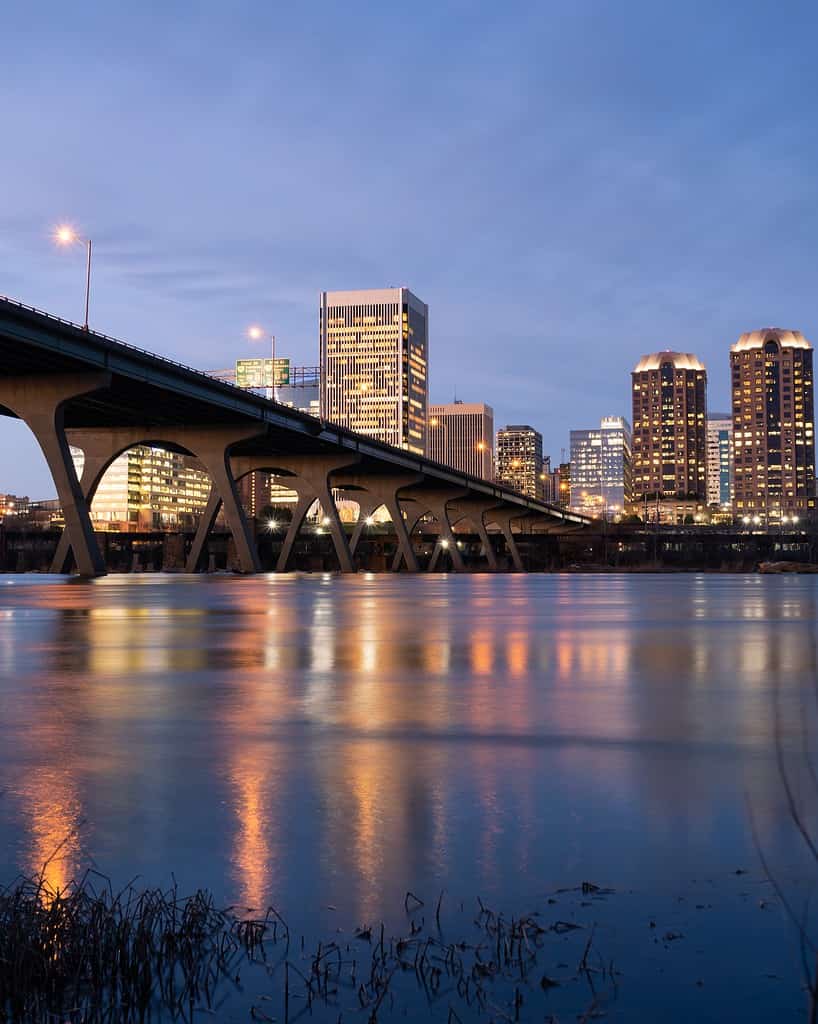Becoming a Certified Public Accountant (CPA) in Virginia is a great way to advance your career and gain the professional recognition that comes with becoming a CPA. To become a CPA in Virginia, you must meet certain educational and experience requirements, pass the Uniform CPA Exam, and apply for licensure with the Virginia Board of Accountancy. This article will provide all the information you need to complete these steps and become a CPA in Virginia.

CPA Career in Virginia
We all know “Virginia is for Lovers.” You may not realize that “Virginia is for CPAs!” The state may struggle to pull in many tourists with the updated slogan. It might, however, attract enough accounting talent to keep up with high demand. Virginia is going to need all the help it can get. The U.S. Department of Labor entity, O*Net, estimates that accountant and auditor positions will grow by nearly ten percent in the period leading up to 2030. That means it will see some 4,700 job openings for accountants annually. This growth is through job growth, turnover, and as the old guard calls it quits and settles into retirement.
IBISWorld is a research and analytics firm. It reports that three of the top five industry sectors contributing to Virginia’s GDP are ideal for accounting talent. Manufacturing, healthcare, and finance will continue to perform well in the state.
You will find a lot of governmental accounting jobs in Virginia. They are in the heart of Washington, DC. The aerospace and defense industry close to our many military bases is a source of employment. Fortune 500 companies like Northrop Grumman and General Dynamics constantly need expert accounting professionals.
What large corporations operate in Virginia? Capital One is based in McLean. Genworth Financial is in Richmond. Computer Sciences Corporation is in Falls Church. It leads the way in IT enterprise services, fueling a solid demand for technical CPAs.
There are many conventional accounting firms scattered around Virginia. They include the Big Four firms around D.C. Smaller regional and local firms like the CST Group in Reston also hire CPAs. Accounting professionals are meeting all the usual demands of small businesses and individuals in specialties like assurance services, tax accounting, and retirement planning.
Here are the Steps to Become a CPA in Virginia:
- Getting Your CPA Education in Virginia.
- Taking the Uniform CPA Exam in Virginia.
- Gaining the Needed Experience in Virginia.
- Getting Your CPA License and Continuing Education in Virginia.
Getting Your Education in Virginia
Begin the process of your CPA by contacting colleges and universities in Virginia that offer high-quality accounting programs, online or on campus. You can learn more about the options available over the phone with knowledgeable business school representatives.

All certified public accountants in Virginia comply with Virginia Board of Accountancy policies. The rules include an undergraduate degree and 150 credit semester hours. Typical accounting bachelor’s degrees include 120 semester hours. Business students will often earn a master’s or post-baccalaureate certificate in accounting. This route is the standard way to get the needed 30 additional credits.
Some of the nation’s best programs are available through distance learning. There are also specialized five-year programs that feature a balanced bachelor’s and master’s curriculum. These combination programs are designed to give CPAs the 150 semester hours needed to meet Virginia’s CPA requirements.
Coursework
Virginia’s CPA degree and coursework requirements include at least 120 credit hours of college coursework. Candidates must hold a minimum of an undergraduate degree to be prepared to take the Uniform CPA Exam. A total of 150 credit hours are required for licensure. There is time between taking the exam and applying for a license. Accounting students must earn 30 additional credits through a Master’s in Accounting or a post-bachelor’s certificate.
Between their undergraduate and graduate degrees, future CPAs must complete the following courses to meet the Virginia Board’s CPA requirements:
- Twenty-four credit hours of accounting classes. There must be auditing, management accounting, taxation, and financial accounting courses.
- Twenty-four credit hours of business classes. There can be no more than six semester hours of this requirement in accounting courses. Introductory accounting and principles courses cannot fulfill any of the 48 credit hour business and accounting credit requirements.
Taking the Uniform CPA Exam in Virginia
Applicants first complete 120 semester hours of the required 150. Once they have received an undergraduate degree, they can sit for Virginia’s Uniform CPA Examination.

All Uniform CPA Exam test takers use the Virginia Board of Accountancy’s online application. They must know their Jurisdiction ID to use this online application. This is obtained by calling the Virginia Board at (804) 367-8505.
Next, future CPAs in Virginia mail the appropriate documentation to the Virginia Board of Accountancy.
Documentation includes:
- All official college transcripts.
- A copy of a driver’s license.
- Payment for exam and application fees.
- Test takers needing testing accommodations due to disabilities may enclose proper documentation while requesting test modifications.
Once the Virginia Board receives an application with needed documents and fees, it will send an Authorization to Test (ATT) to the National Association of State Boards of Accountancy. The NASBA then issues a Notification to Schedule (NTS).
When candidates receive a receipt of their NTS, they contact Prometric. They can schedule their exam at a convenient Virginia site. Locations include Roanoke, Alexandria, Newport News, Bristol, Fairfax, Glen Allen, and Lynchburg.
After students take the CPA Exam, they can find their scores posted online at the Virginia Board of Accountancy website.
Gaining the Needed Experience in Virginia
All CPA applicants in the commonwealth of Virginia fulfill work experience requirements in the licensing process. The Virginia Board of Accountancy requires applicants to complete the American Institute of CPAs (AICPA) Professional Ethics home study course. The course includes eight semester hours. Text and CD-ROM versions of the study course are available for purchase.
Virginia statutes require all CPA applicants to complete one year/2000 hours of accounting work experience. The experience must include a paid position. It may be full or part-time and should be in public accounting, academia, industry, or government. A supervising CPA attests to this experience for accountability. Students’ business school career centers are brimming with possible work experience options.

The employment consists of a mentoring experience. Self-employment and tax preparation do not qualify as appropriate experience.
Supervisory duty experience means that students supervise other public accountants and authorize others to sign their firm’s financial statements. Two years of this experience are required. The experience includes 600 hours in audit reviews or audits.
Competencies covered within work experience include:
- Skills relevant to the accounting profession.
- Accounting skills.
- Financial skills.
- Tax skills.
Getting Your CPA License in Virginia
You are prepared to apply for a Virginia CPA license after you:
| Pass the Uniform CPA Examination. | Complete the ethics course. |
| Complete 150 credit hours of college education. | Fulfill Virginia’s work experience requirement. |
Here is a checklist to verify your eligibility for Virginia licensure:
- Fulfill 120 semester hours and earn a bachelor’s degree.
- Apply to the Virginia Board of Accountancy for the Uniform CPA Exam.
- Complete all 150 credit hours of the educational requirement for licensure.
- Submit official college transcripts to the Virginia Board of Accountancy.
- Complete the AICPA home-study ethics course.
- Complete one year/2000 hours of validated work experience.
How to Stay Current with Virginia’s Continuing Professional Education
The Virginia Board of Accountancy states CPAs must satisfy professional education (CPE) requirements to maintain their CPA license. This requires fulfilling 120 hours of CPE every three years. Twenty hours of CPE are completed each year.

The Board requires two hours of CPE in a Virginia-specific ethics course. Fifty minutes of class time is like one hour of CPE. CPA professionals working in attest or compilation services that release reports must fulfill eight hours of attest CPE credit each year. These accounting professionals must also attend the appropriate forums for CPE credit.
These forums include:
- Seminars and conferences.
- Credit courses at colleges and universities. Each semester hour of credit equals fifteen hours of CPE.
- Self-study courses. These courses must include a method used to evaluate what CPAs have learned.
- Presenting at a seminar, class, or conference. This forum accounts for only 30 hours of CPE every three years.
- Write resources that apply to CPA services.
- Lecture or instruct in academia.
CPAs in Virginia should maintain proof of their CPE hours for at least three years. CPE can be audited. Accountants are to keep copies of the certificates of completion received for their CPE credit. CPAs not receiving certificates but who did receive CPE credit from an in-house program given by an employer must provide records of the CPE. The records should list the course provider’s name and title. A course description, course date, and number of CPE credits should be recorded.
What’s Next?
This article was created to show you what it takes to be a fully licensed Virginia CPA. Once you receive your CPA credentials, consider joining the American Institute of CPAs (AICPA). This respected organization offers its members continuing professional education opportunities. The AICPA also features professional development, professional guidance, and CPA networking opportunities. Resources include discounts on office supplies and shipping services, among other tangible benefits. Virginia’s state professional accounting societies offer the same benefits. They include the Accountants Society of Virginia and the Virginia Society of Certified Public Accountants.
While you are considering becoming a CPA in Virginia, think about specializing in the discipline of accounting while pursuing your degree. In Virginia, tax services, financial planning, auditing, forensic accounting, budgeting analysis, and information systems are some specialties CPAs pursue. There are many reasons why becoming a CPA in Virginia is advantageous. This article serves as a springboard for understanding how your education, exam, and experience combine to help you start a career in this exciting field.
Related Resources:
Best Free Online Accounting Courses
Best Online Bachelor’s in Accounting
Best Online Master’s in Accounting Programs
